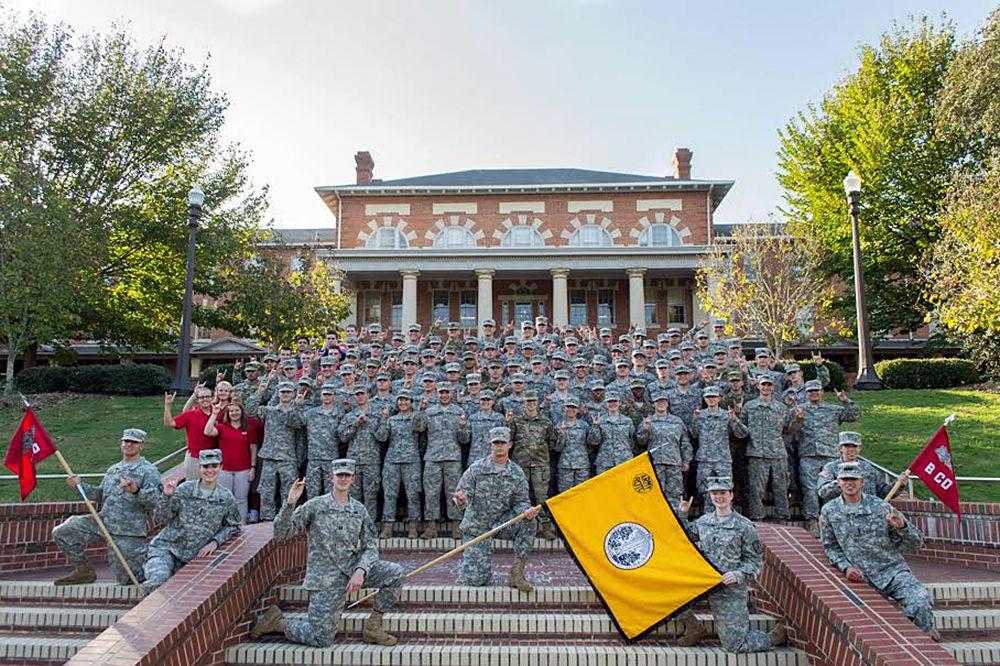As NC State’s robust Military Science Program enters its 124th year, the Reserve Officer Training Corps (ROTC) continues to train our country’s young people to become the leaders of tomorrow. The NC State U.S. Army ROTC program consists of a voluntary two-year basic course for first- and second-years with no military obligation and a two-year advanced course for third- and fourth-years.
Maj. Andrew Sinden, professor of military science, said that a congressional mandate requires any officer in the military to have a baccalaureate degree, and that is why ROTC programs are so widespread at college campuses nationwide.
“The main benefit you learn here is you have a dedicated group of cadre that is going to develop you, physically, mentally and through leadership skills,” Sinden said. “Unlike a traditional academic adviser who is ensuring that you are on path with the correct courses to graduate at a certain time, our job is the daily interactions with our students.”
The military sciences program is a hallmark of the university, having been established at NC State in 1894. All male students were required to participate until 1965, when the policy was amended by the Faculty Senate.
An essential part of the ROTC program at NC State is the military model, which stresses leadership, responsibility and experience.
“The best way to develop as a leader in the military model is through experience,” Sinden said. “Every level through which you progress, you are given more and more responsibility and a larger leadership position. Of course leadership can’t just be taught through a book, it’s through experience. So our program builds every year.”
NC State has an Army ROTC program as well as a Navy ROTC and Air Force ROTC. The Army program includes the National Guard, and the Navy ROTC includes Marine Corps connections.
Capt. Barry Morris, Marine officer instructor, gave a few examples of benefits of joining the Navy ROTC.
“With the Naval ROTC, one of the key benefits is that, although you’re part of this program, you still get to maintain a semi-normal college experience, whereas, we don’t put overwhelming commitments on their time, but we do ask for a specific amount of commitment,” Morris said. “You can still enjoy all the great programs at a great university like NC State.”
Doug Boisse, a fourth-year studying civil engineering and midshipman battalion commander for Navy ROTC, discussed the sizable impact of the ROTC program on his life.
“It’s been humbling because it really teaches you,” Boisse said. “One thing it’s taught me is self-discipline, in my day-to-day life as well as the military. These people all signed up to do the same thing that you wanted to do. It’s a pleasure to get to know all these people and see the great people that are going to serve our country as soon as we graduate.”
Boisse told us that the ROTC program served him well as a motivation and a kick-starter.
“One thing that ROTC really helped me with was to learn to get that self-discipline and structure my day,” Boisse said. “It really makes you mature a bit quicker than what you kind of want to, but it lights that spark under you; it gets you going.”
He said he felt a personal responsibility compelling him to join the Navy.
“Someone fought for what I’ve got,” Boisse said. “The least I can do is try to give that to someone else.”
The ROTC office is located in Reynolds Coliseum and more information about their services can be found on its website.








